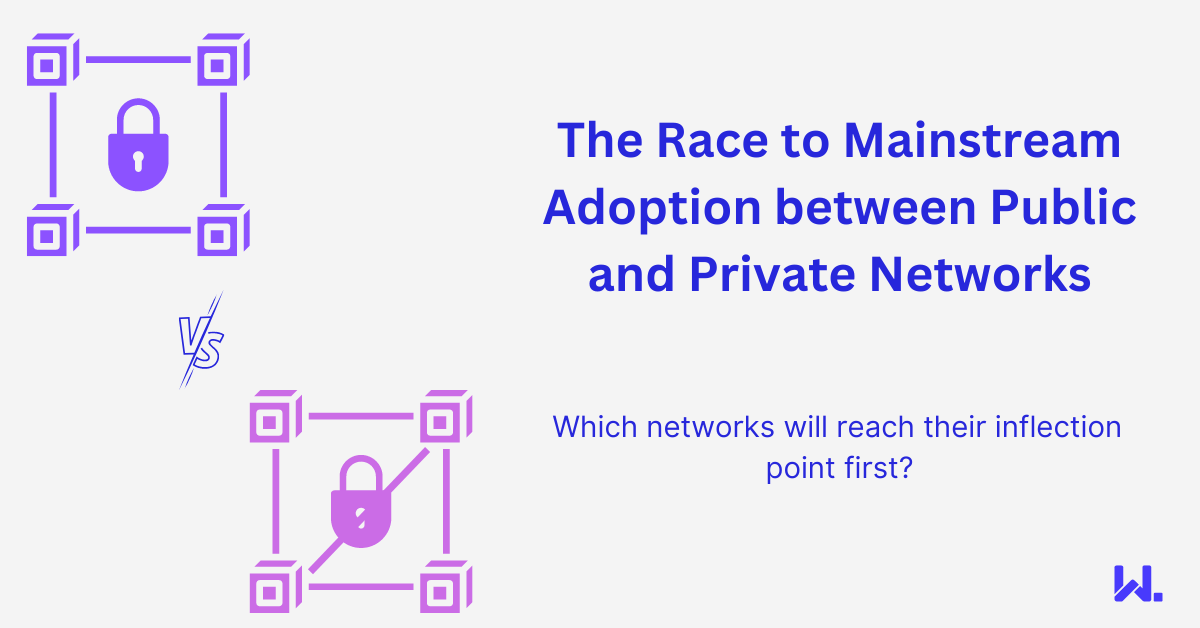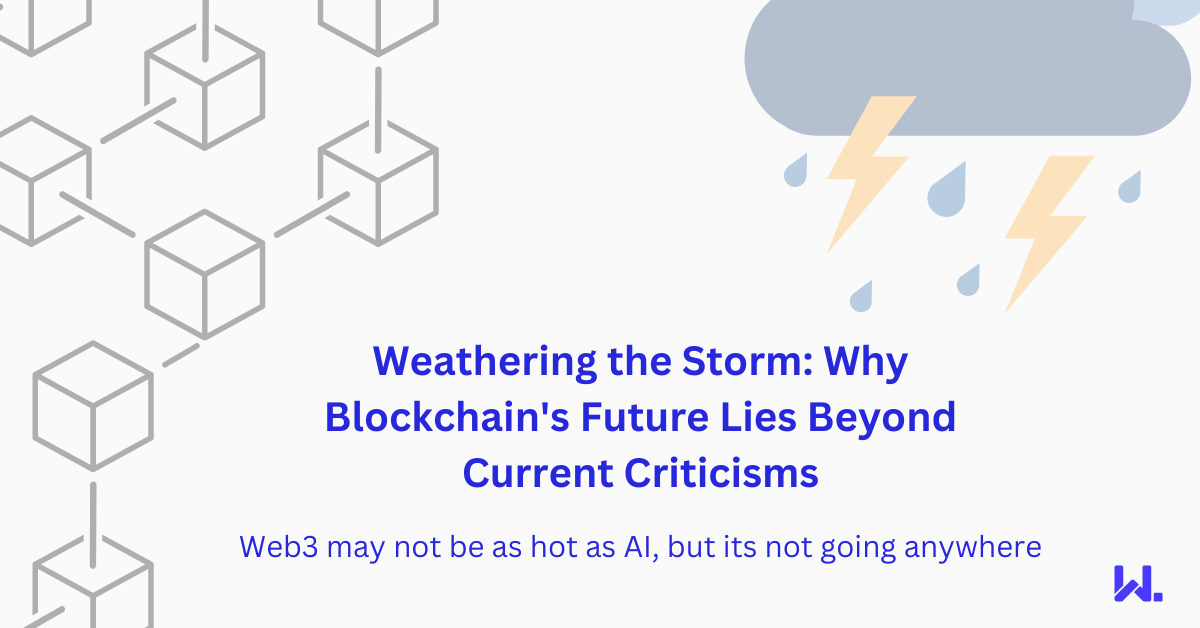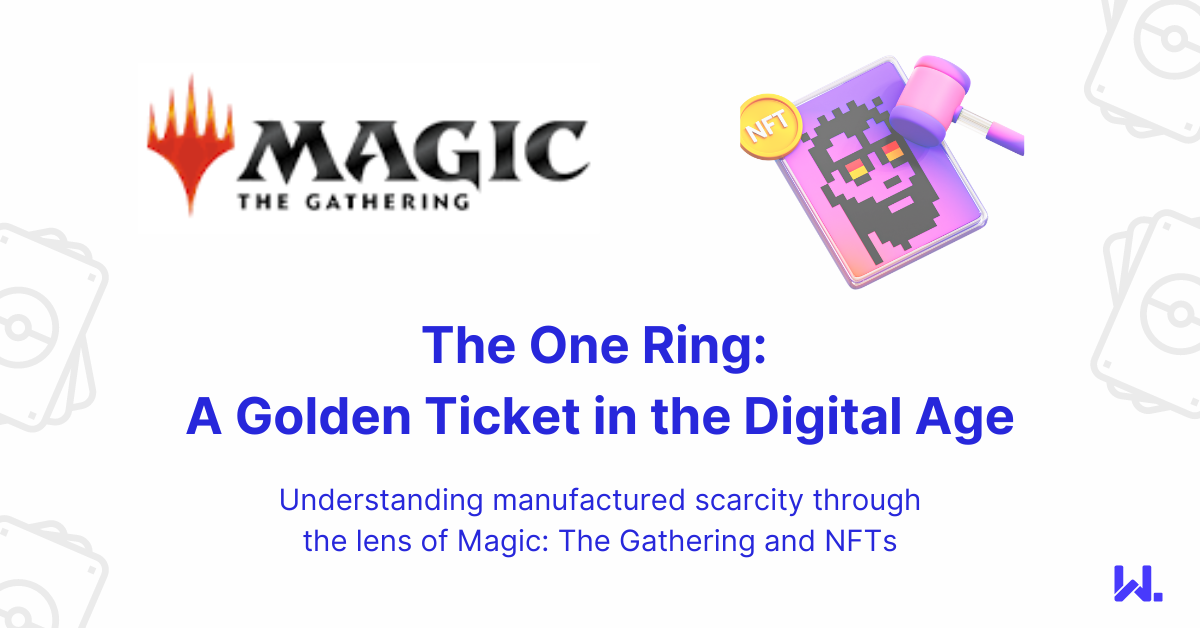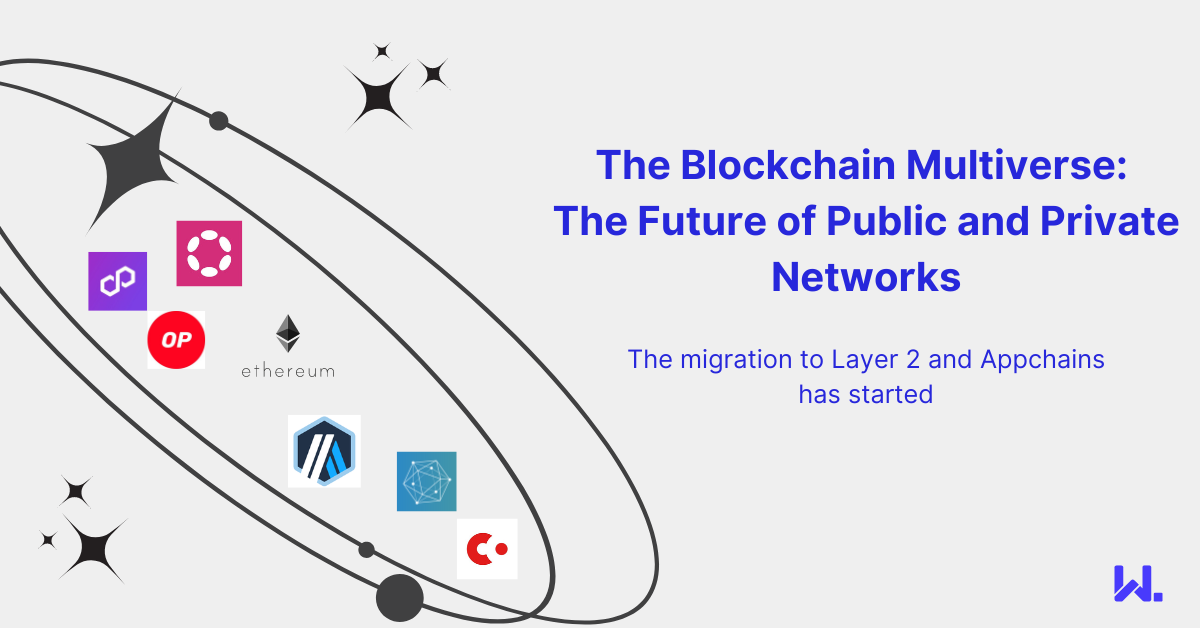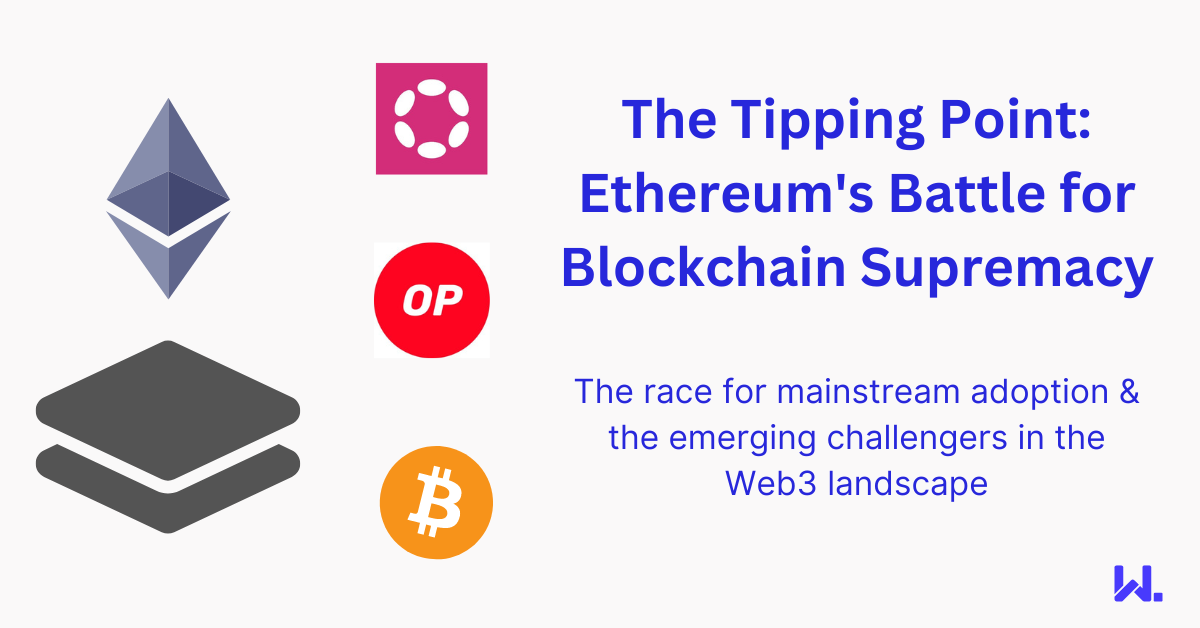The Race to Mainstream Adoption between Public and Private Networks
2023 hasn't been a great year so far for the crypto and blockchain industries as far as mainstream adoption goes. We're in the middle of a builders market, where teams are continuing to innovate and push the boundaries of blockchain and web3 forward. However, the wider market sentiment towards the industry is fairly negative.
Questions of the usefulness of the technology beyond financial speculation appear to be front of mind for many. You also have major advances in AI — driven by ChatGPT stealing much of the limelight that 12 months ago was focused on web3.
Trends come and go all the time in tech, and the allure of crypto, NFTs and DeFi is less since a number of the world's leading economies started struggling against a high inflationary backdrop. When the economy is in the doldrums, the last thing most people are thinking about is where to drop funds to gamble on the price of speculative assets.
Every cloud…
Although the wider economic outlook isn't great, there's still been some significant activity from a regulatory perspective:
-
Beijing released a Web3 Innovation and Development White Paper that recognised the potential of web3 and blockchain technologies.
-
Hong Kong's securities regulator is starting to accept license applications for crypto exchanges.
-
The EU's MiCA regulation was adopted which provides common rules on the supervision, consumer protection and environmental safeguards of crypto-assets, including crypto-currencies which aren't covered by existing financial markets legislation.
Given the size of the economies impacted by these legislations, they are significant. In the US, a cloud may still hang over the treatment of digital assets insofar as if they should be considered a security. But it’s refreshing to see progress being made elsewhere.
We already know that both China and the EU are embracing blockchain and DLT technology for their digital Renminbi and Euro respectively, but these are using private blockchain networks, and are unlikely to end up connected to public blockchains due to their decentralised and neutral nature.
Having appropriate legislation in place to deal with digital assets is essential to ensure that public networks will be embraced by the larger nations. Crypto and speculation are not the end goal for mainstream adoption.
This legislation to deal with these blockchain-based assets and the requisite knowledge in legal frameworks to support them will simplify the onboarding for an ever-increasing number of companies and users. As they will have already jumped through many of the hoops previously with crypto assets.
The race between public and private networks
The adoption of private blockchain networks will not mirror these public networks. Their reach and focus is typically narrower than their public counterparts. As such, one does wonder whether it will be public networks or private networks that become core components of our everyday lives first.
One could consider crypto a mainstream asset class given that over 400 million people worldwide have used them. However, it is only in developing nations where it is out of necessity due to the instability of their own fiat currencies.
In developed nations, crypto is primarily a tool for financial speculation by most users, which is not an essential use for the technology, unless you consider portfolio diversification crucial to your everyday life.
There's no doubt that various public blockchains will constitute a new trust layer that runs on top of the existing internet. But we may still be a number of years off this inflection point which sees people flocking to them in droves.
Whether you draw parallels with a previous significant technology trend — the desktop PC, the social network, the iPhone or ChatGPT, it's not certain that such a catalyst will happen in the remainder of this decade in the developed world.
Meanwhile, you have initiatives such as CBDCs and cross-border payment networks utilising private blockchain networks gathering steam, and even existing projects by banks such as J.P. Morgan.
Whilst central banks certainly aren't renowned for their agility, like the slow and steady tortoise in Aesop's Fable, they are continuing along their chosen paths. It's not unfeasible in my opinion that we may see some of the fruits of their labour have a larger impact in terms of everyday impact sooner than some of the decentralised applications being born on public blockchains.
For instance, in 2023-2024 it is anticipated the Fnality payment network will go live facilitating blockchain-based payments between regulated banks for sterling.
Everyone is a winner
Whether the adoption of such initiatives happens ahead of other pure decentralised applications on public networks shouldn't really matter. Either approach is a strong endorsement of what is possible with the technology.
Private blockchain networks may go against some of the principles of public networks, but adoption of the underlying technology, in either case, should be viewed as a good thing, as it’s certainly far better than what was there before with highly centralised systems.
No system can ever be perfect. Public blockchains still have valid criticisms levied against them with respect to how decentralised they truly are and questions over how fairly their underlying cryptocurrencies were originally allocated to investors and teams building on them.
But whether something is done using a public or private blockchain, or even a blockchain itself should ultimately be little more than an implementation detail.
It's inevitable that widespread tokenisation of digital and real-world assets will come to fruition. Blockchains are a significant enabler here. However, exactly when and which type of asset (or better yet, thing) has the widespread impact we're all hoping for remains to be seen. But it shouldn't be a concern of where that blockchain is, as it’s still going to be a better solution than what was there before.

